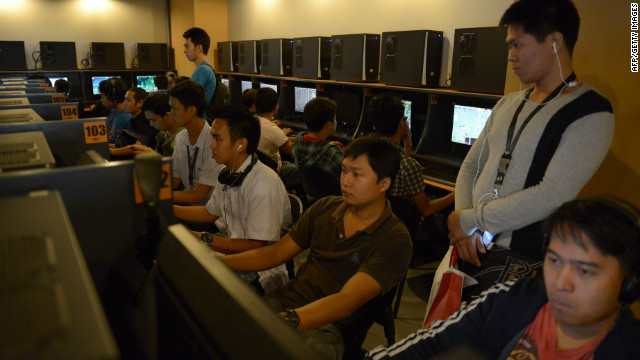
- A controversial new cyberlaw has been suspended in the Philippines by the country's top court
- The Cybercrime Prevention Act went into effect on October 3 amidst widespread protests
- Law seeks to address child pornography, identity theft and other computer-related offenses
- Critics of the law are against various provisions of the law, mainly one that criminalizes libel
(CNN) -- A controversial new cyberlaw has been temporarily suspended in the Philippines by the country's top court Tuesday, a move seen as a victory of netizens who objected to the criminalization of libel, which could result in social media users being thrown in jail for posts.
The Supreme Court suspended the new law for 120 days effective immediately, giving the government time to amend the law.
Fifteen petitions -- signed by hundreds of individuals and several organizations -- were filed opposing the law. Petitioners said the law has a "repressive perspective on personal freedoms and regressive view of technology."
The top court's order has given respondents 10 days to comment on the petitions filed and has set January 15 to hear oral arguments in the case.
The Cybercrime Prevention Act of 2012 went into effect on October 3 amidst widespread protests by the Filipino online community, journalists and free speech activists. Critics of the law are against various provisions of the law, mainly one that criminalizes libel. The Internet community was up in arms over implications the law may have on social media communication.
The law seeks to address cybersex, child pornography, identity theft and other computer-related offenses.
"We commend the Supreme Court for deciding unanimously on this one. Although there will be deliberations, the next step would be to strike down this law altogether," said Carlos Conde of Human Rights Watch. "For the online community, this is a defining moment, to realize the power they have in their hands for political and civil actions."


